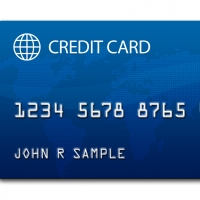Government Credit Cards Moving to Chip-and-PIN Technology in 2015

Outside the United States, the stronger security technology found in chip-and-PIN credit and debit cards has been the standard for years. And, as many of us have discovered the hard way while traveling abroad, terminals designed for chip-and-PIN or EMV cards don’t always accept your standard American credit card with the magnetic strip on the back.
That will change beginning in 2015, when more US banks, merchants, and the federal government begin rolling out chip-based cards. Noting that more than 100 million Americans were victims of data breaches in the past year, the White House is leading the move to chip-and-PIN technology in hopes that retailers and banks will quickly fall in line with the rest of the world.
President Obama signed a new executive order—Improving the Security of Consumer Financial Transactions—that mandates government credit cards, as well as debit cards like Direct Express, begin transitioning to chip-and-PIN technology in January 2015. The government will also upgrade retail payment card terminals at federal agency facilities, such as passport offices, to accept chip-and-PIN cards.
According to a White House announcement, the government will begin a replacement program on January 1, 2015 and within the calendar year, issue more than one million new chip-and-PIN government payment cards. In addition, retailers Home Depot, Target, Walgreens, and Walmart plan to install payment terminals in their stores equipped to handle the new cards during 2015.
Instead of a magnetic strip that contains your account data, chip-and-PIN cards have more secure embedded microchips, and face-to-face transactions will require consumers to enter a PIN number. While there has been resistance to the move to the new technology before, this past year has been a wakeup call for US consumers and companies. Last holiday season, Target suffered a massive credit card breach that made headlines, and now Staples has joined the list of companies with credit card breaches that include Neiman Marcus, Home Depot, Michaels, and others.
Do chip-and-PIN cards really make a difference? The government hopes so. The White House blog cites that from 2004 to 2010, the United Kingdom saw in-store fraud losses drop 70 percent. There’s another incentive as well: the Counterfeit Card Liability Shift begins October 1, 2015. If credit card fraud occurs, whoever has invested in the chip-and-PIN technology is protected from financial liability for card-present counterfeit fraud losses, meaning both the issuer of the card as well as the retailer has to update or end up liable.

